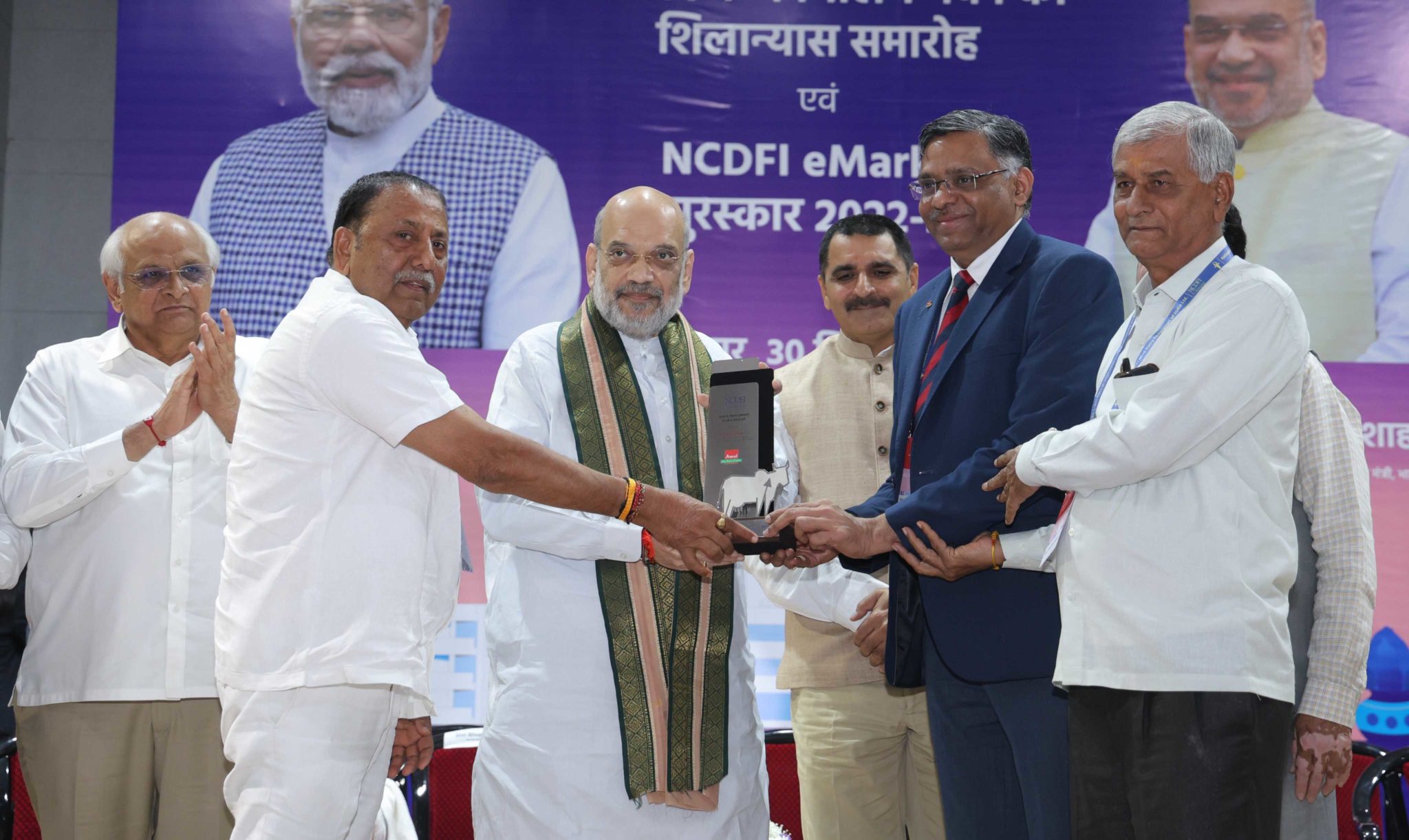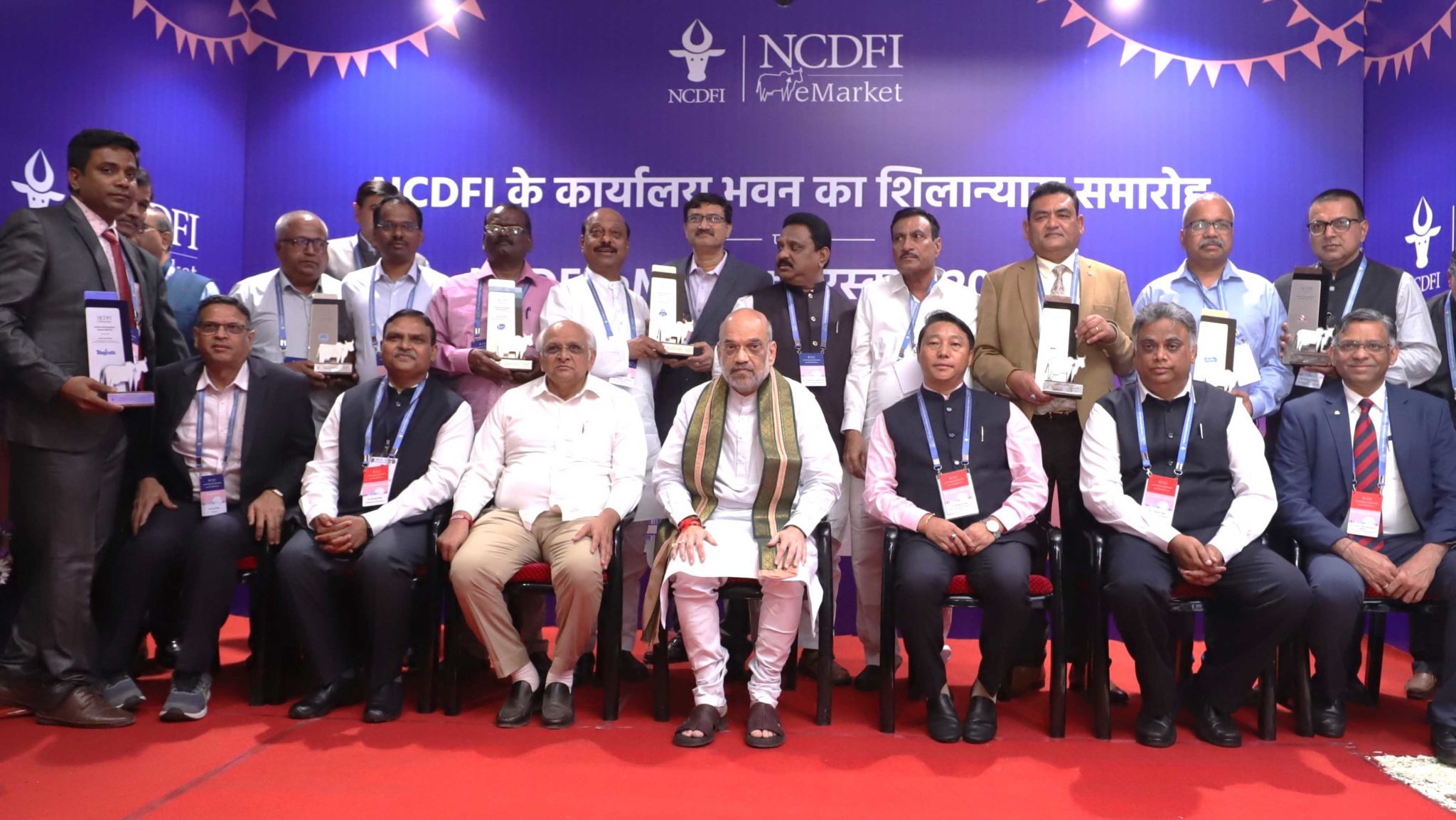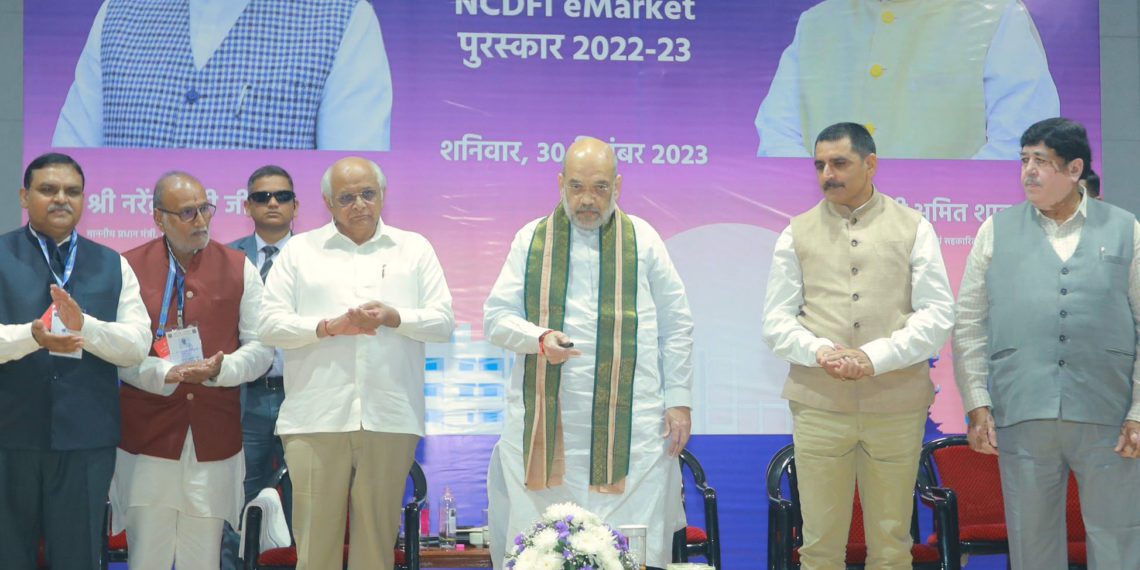Union Home Minister and Minister of Cooperation, Amit Shah, marked a historic occasion in Gandhinagar, Gujarat, by laying the foundation stone for the National Cooperative Dairy Federation of India NCDFI ‘s headquarters and addressing the prestigious e-Market Awards 2023 ceremony.
The event saw the presence of notable dignitaries such as Gujarat Chief Minister Shri Bhupendra Patel, Gujarat Legislative Assembly Speaker Shri Shankar Choudhary, IFFCO Chairman Shri Dilip Sanghani, NDDB Chairman Dr. Meenesh Shah, and NCDFI Chairman Dr. Mangal Jeet Rai.
In his enlightening speech, Shah underscored the remarkable achievements of the dairy sector, particularly the cooperative dairy segment, in India. Emphasizing the transformative impact of cooperative trading in the milk industry, he articulated that cooperative efforts integrate various dimensions, benefiting society, agriculture, villages, milk producers, and the nation at large. Over the past 50 years, India has witnessed a success story in cooperative dairy, with the sector playing a pivotal role in the country’s unprecedented 24% share and global leadership in milk production.
Attributing the phenomenal 51% increase in milk production over the last eight years to Prime Minister Shri Narendra Modi’s leadership, Shri Shah highlighted the pivotal role played by cooperative dairies. He stressed the need for institutions like NCDFI to nurture cooperative dairy ventures, citing the organization’s role in providing guidance to dairies across the nation. The upcoming NCDFI headquarters, situated in the Anand district, will cover approximately 7,000 square meters, entail a cost of Rs 32 crore, and operate on solar power, embodying a commitment to sustainability as a 100 percent green building.
Shah pointed out the substantial advantages of cooperative dairy business, particularly the empowerment of milk producers. Cooperative trading allows for the establishment of milk unions at the village and district levels, providing essential infrastructure for cold storage, processing, and converting milk into market-demanded products. This, in turn, eliminates the exploitation of individual milk producers. Additionally, cooperative efforts facilitate improvements in animal health, breeding, and nutrition, thereby contributing to the broader nutrition movement.


Reflecting on the historical journey of the cooperative dairy movement in India, Amit Shah acknowledged the significant role played by dairies like Amul, processing 40 million liters of milk daily with a turnover of Rs. 72,000 crores in 2021-22. He underscored the transformative impact of digital revolution in the country, with India emerging as a global leader in digital transactions. The Minister of Cooperation commended the success of the experiment in Gujarat, where farmers are provided with RuPay cards, turning every village dairy into a ‘Bank Mitra’ and fostering cashless transactions.
Shah envisioned a formal economy driven by cooperatives, urging the promotion of cooperative models across the nation. He urged NCDFI to delve into organic farming, echoing Prime Minister Shri Narendra Modi’s vision, and highlighted the establishment of a multi-state cooperative institution for marketing organic products. The Minister of Cooperation also emphasized the importance of a seed cooperative to conserve and promote Indian seeds, fostering economic empowerment at the grassroots level.
Addressing the future initiatives, Shah outlined plans for e-auction platforms, procurement of pulses on the e-market portal, and the launch of NAFED’s app. He emphasized NAFED’s commitment to purchasing pulses at one rupee more than the Minimum Support Price (MSP), contributing to India’s self-reliance in the oilseeds sector. Additionally, he shared plans for promoting ethanol production from maize, aligning with the global alliance for ethanol formed by Prime Minister Shri Narendra Modi.
In conclusion, Shah encouraged NCDFI to disseminate successful cooperative models, facilitating economic growth and self-reliance across districts in India. The Minister of Cooperation affirmed the government’s commitment to achieving goals such as crop diversification, reduced fertilizer usage, and self-reliance in pulses and oilseeds, reflecting a holistic vision for the future of the nation’s agricultural landscape.






















































